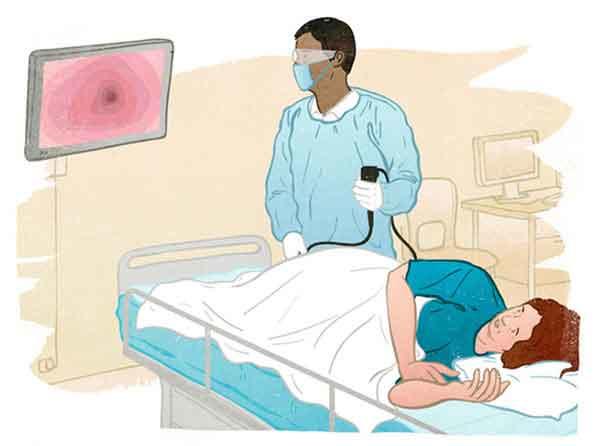Colon cancer screening is a preventive measure that enables the early detection of abnormal growths in the colon or rectum, often before symptoms appear. By identifying precancerous polyps or early-stage cancer, screening significantly improves treatment outcomes and survival rates. Understanding the significance, timing, and available methods of colorectal cancer screening empowers individuals to take proactive steps in protecting their long-term digestive and overall health
The Purpose of Screening
Colon cancer screening refers to tests performed on healthy individuals who show no symptoms of the disease. These screening procedures differ from diagnostic tests, which doctors order to investigate specific symptoms or health concerns. The primary goal of colorectal cancer screening is prevention rather than treatment.
Screening tests work by identifying precancerous changes in the colon before they develop into cancer. Polyps, which are small growths on the colon lining, usually cause no symptoms and grow silently for months or years. Most people remain unaware of their presence until a screening test reveals them. The cause of polyp formation remains unknown, but their removal during colon health screening prevents cancer development.
Types of Screening Tests
Two main categories of colon cancer screening tests are available: stool-based tests and visual examination procedures. Stool tests check for hidden blood or abnormal DNA that may indicate cancer or polyps. These tests are less invasive but require regular repetition to maintain effectiveness.
Visual examination procedures provide direct visualization of the colon interior. Colonoscopy is the most comprehensive screening method, allowing examination of the entire colon using a flexible tube with a camera. During this procedure, doctors remove any polyps found, providing both screening and treatment in a single session. Flexible sigmoidoscopy examines only the lower portion of the colon. While less comprehensive than colonoscopy, this procedure still provides valuable screening for the rectum and sigmoid colon areas where cancers may develop.
Recommended Screening Guidelines
Current guidelines recommend that most adults begin colon cancer screening at age 45. The American Cancer Society updated these recommendations after noting an increase in colorectal cancer cases among younger adults. Previously, screening typically began at age 50, but earlier detection efforts have become necessary.
Individuals with a family history of colon cancer may need to start screening at an earlier age. Those with relatives who developed colorectal cancer should discuss their screening timeline with their healthcare provider. A personal history of inflammatory bowel disease also affects screening recommendations. The frequency of colon health screening depends on the chosen test method and individual risk factors. High-risk individuals may require more frequent screening intervals.
Overcoming Barriers to Regular Screening
Many people avoid colorectal screening due to concerns about the procedure or preparation requirements. Understanding the screening process and its benefits helps address these concerns. Modern colonoscopy procedures often use sedation to make sure patients remain comfortable throughout the examination.
The preparation for colonoscopy involves dietary restrictions and the use of bowel cleansing solutions to aid in clear visualization during the procedure. While the preparation requires effort, it remains temporary and fundamental for accurate results. Healthcare providers offer detailed instructions and support throughout the preparation process.
Schedule Your Colon Cancer Screening Appointment
Regular colorectal cancer screening provides the best protection against this preventable disease. The screening process identifies problems before symptoms develop, enabling early intervention. Adults aged 45 and older should discuss screening options with their healthcare providers to determine the most appropriate schedule for their individual needs. Contact your healthcare provider today to schedule a colon cancer check and take a key step toward maintaining your long-term health.









Leave a Reply